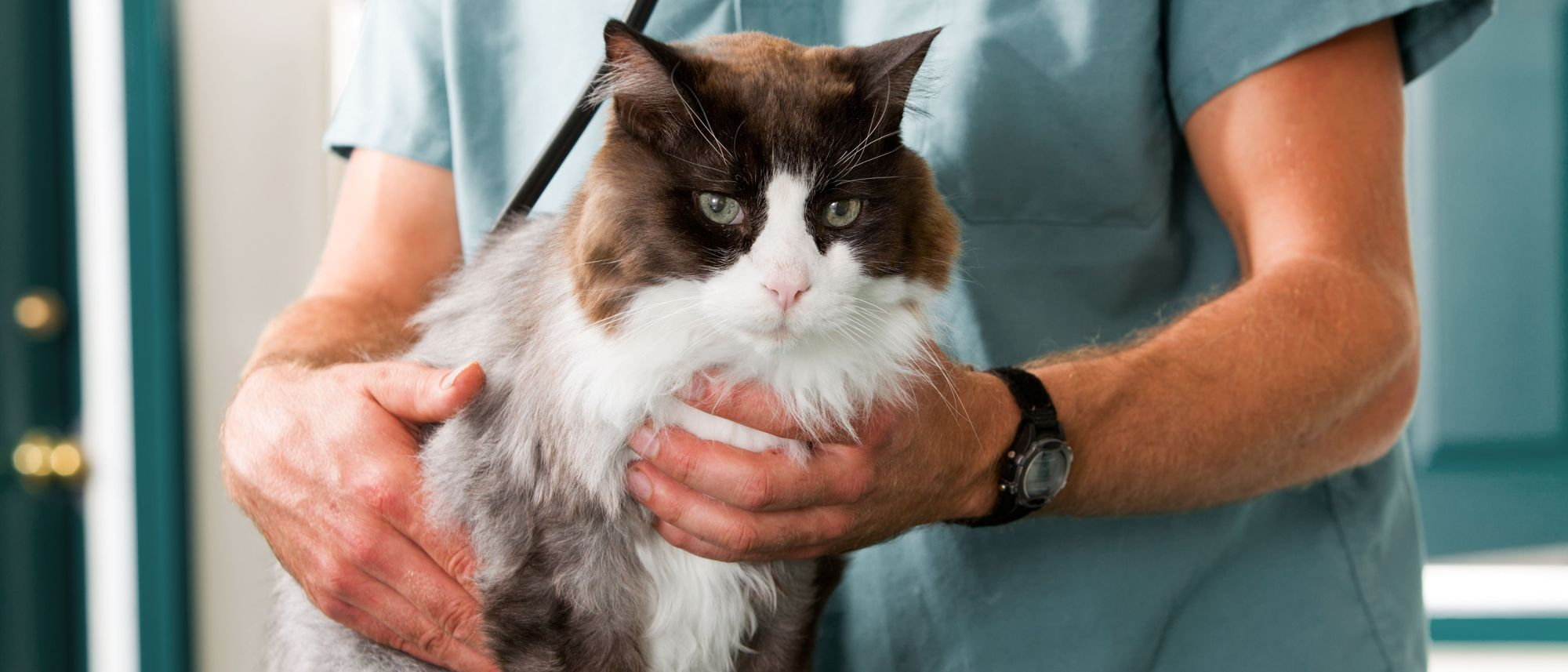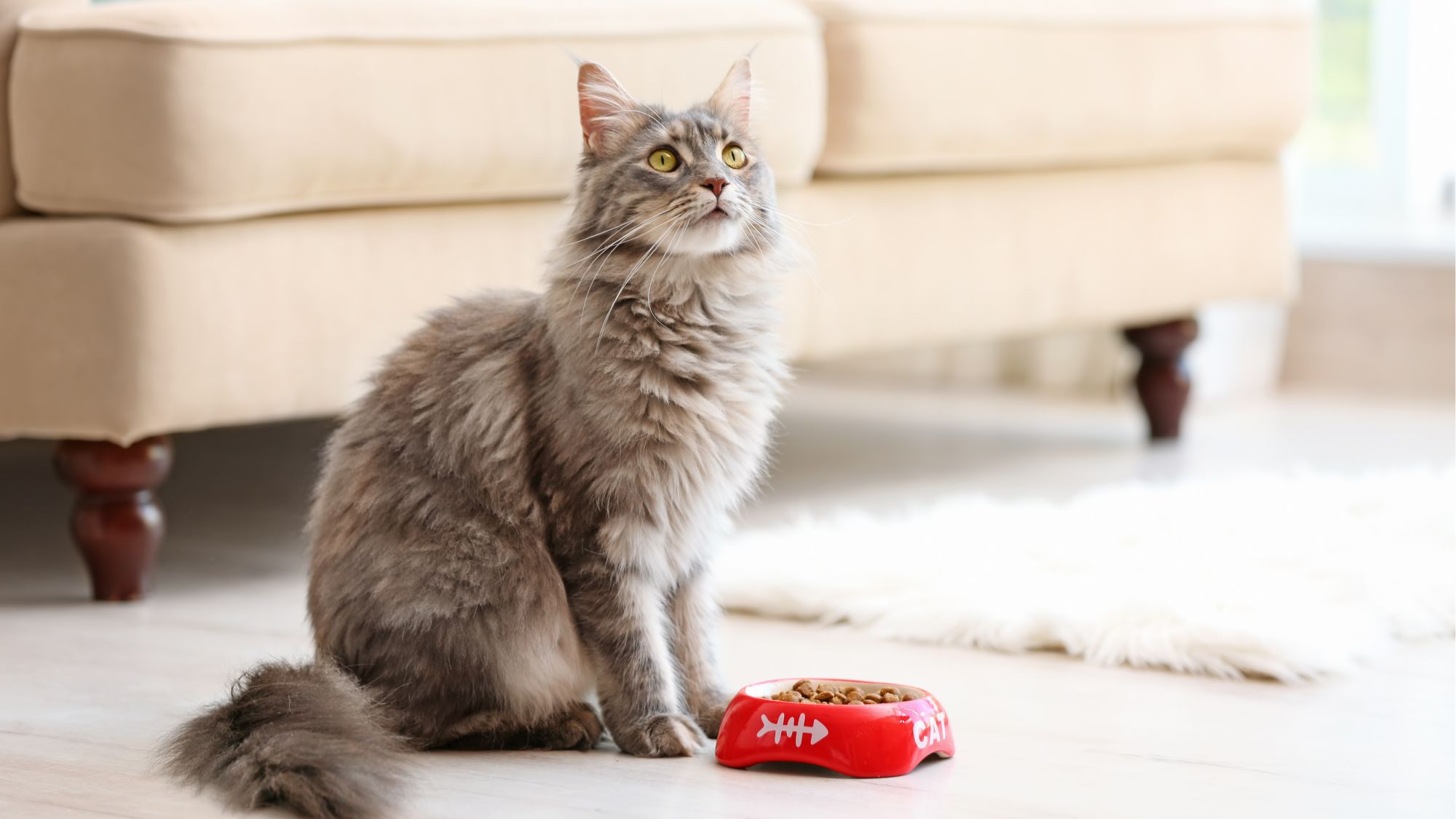Nutrition and Support for Cats With Food Allergies
Article

When a cat’s immune system detects a foreign organism, like a virus or bacteria, it triggers a defensive response. Sometimes protein molecules in food are mistaken for these invaders and the resulting immune system reaction is known as a food allergy.
A cat suffering from a food allergy may experience a range of signs, including hair loss, redness, vomiting, itchiness and diarrhea. To help manage these signs and future episodes, a vet may suggest a change in diet.
How Are Food Allergies in Cats Diagnosed?
An elimination diet trial is often the first step in diagnosing and managing an allergy. The aim is to identify if a cat has a food allergy.
How Does an Elimination Diet Trial Work?
It begins by transitioning a cat onto a veterinary exclusive diet, such as Royal Canin’s Ultamino, which is specially formulated for adult cats with severe adverse food reactions.
These diets are highly digestible and have limited ingredients to help reduce the chances of an allergic reaction.
Often, they contain hydrolyzed protein, which means the protein molecules have been cut into tiny pieces to lessen the chance of an immune system response. By contrast, most retail cat foods contain large, intact protein molecules.
Cats on elimination diet trials must avoid eating anything other than the trial food recommended by the vet, as feeding other food, treats, chews or leftovers could affect the results.
After 8-12 weeks of being fed the test food, the vet will begin to reintroduce ingredients they suspect are antigens into the cat’s diet, to see if they provoke an immune system response.
If clinical signs reappear, the vet will then transition the cat onto a tailored diet containing an alternative source of protein or hydrolyzed protein.

How Can Nutrition Support Cats With Food Allergies?
Depending on the cause of the allergy, a vet may recommend one of several cat food allergy diets, like a novel protein diet or a hydrolyzed protein diet.
These diets usually contain either hydrolyzed protein, like the food used on the elimination diet trial, or sources of protein that are less commonly used in cat food.
Often, these types of diets are manufactured in carefully controlled environments, like at Royal Canin, where there are strict protocols to prevent cross-contamination with ingredients that may cause an allergic response.
Expertly formulated dermatological diets (focusing on the skin and coat) contain nutrients that are specially designed to:
- Aid digestive health by regulating movement through the gastrointestinal tract.
- Support the skin’s natural protective barrier.
- Support digestive flora.
- Aid cellular health with a complex blend of antioxidants.
- Many diets also promote a urinary environment unfavorable to the development of both struvite and calcium oxalate crystals, which can support cats prone to urinary stones and urinary tract infections.
Some of these diets may not be suitable for cats who are still growing or reproducing. Your vet will be able to advise you on the best option for your cat.

Novel Protein Diets
Protein sources like duck, rabbit, and venison are typically uncommon in cat food. This means cats are less likely to have been exposed to them and so the chances of a cat developing a food allergy are reduced.However, protein sources that were previously uncommon are now being found in more diets. This makes finding a novel protein, one that the cat has not been exposed to, much harder. Some of the novel protein sources also compete with the human food chain, making them increasingly difficult to source in a sustainable manner.
Hydrolyzed Protein Diets
Hydrolyzed protein diets usually contain a single source of animal or plant protein that has been cut into tiny pieces at the molecular level to reduce the risk of an immune system response.These diets are designed to be highly digestible, and so they’re typically recommended for cats experiencing gastrointestinal upsets or for cats with suspected food allergies.
In situations where a cat is experiencing food allergies and their dietary history is unknown, a hydrolyzed diet may be recommended to help avoid novel proteins they may already have been exposed to.
Cats with reduced appetites may also benefit from a hydrolyzed diet as they’re often designed to be extremely palatable to encourage eating.
How Long Should a Cat Remain on a Tailored Diet?
The length of time varies based on the cause of the allergy. In the case of a chronic food allergy, a cat may need the support of a tailored diet for the rest of its life or until a separate health condition requires a dietary change. Your vet can offer you tailored advice for your cat.
Which Diets Are Most Suitable for a Cat With Food Allergies?
Discovering the cause of a food allergy can be challenging and you’ll need to work closely with your vet to achieve a diagnosis.
Based on the results of an elimination diet trial, dietary history, clinical signs, and any health conditions, your vet will be able to make a recommendation on the long-term nutrition and support that is required.
At Royal Canin, we offer a choice of novel and hydrolyzed protein diets, in wet and dry options in our veterinary exclusive Dermatology range.
What if a Change in Diet Doesn't Work?
If the cause of your cat's signs is a food allergy, their digestive issues will typically show signs of improvement within 1-3 weeks, when using a hydrolyzed protein diet as part of a vet-managed elimination diet trial. If they’re experiencing skin issues, it can take up to 12 weeks for the signs to improve.
If your cat continues to show clinical signs after that period, a vet may decide to conduct further diagnostic tests to investigate other possible causes, such as an environmental allergy.
Learn more about environmental allergies here.
Related Articles
Like & share this page